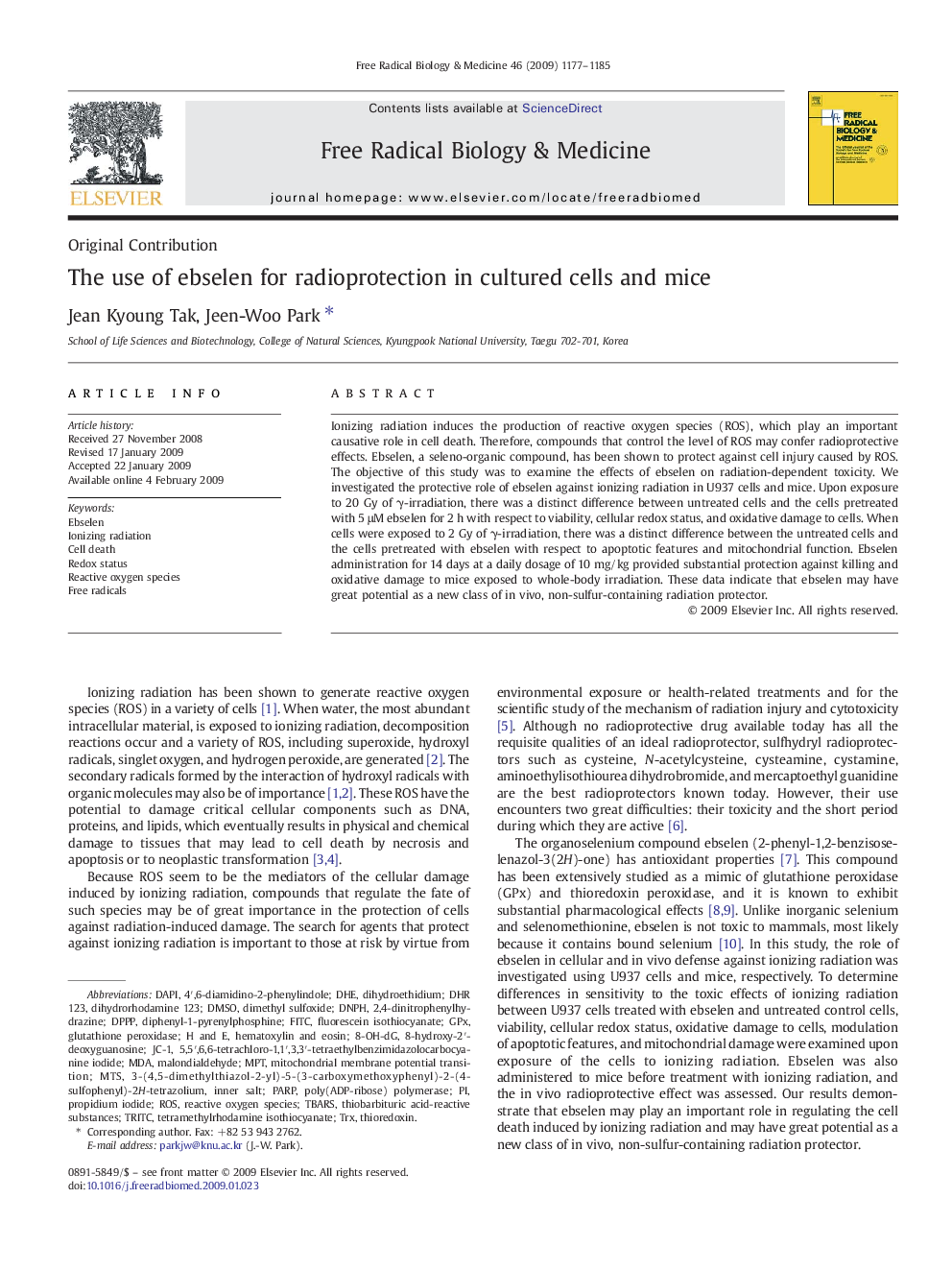| Article ID | Journal | Published Year | Pages | File Type |
|---|---|---|---|---|
| 10738749 | Free Radical Biology and Medicine | 2009 | 9 Pages |
Abstract
Ionizing radiation induces the production of reactive oxygen species (ROS), which play an important causative role in cell death. Therefore, compounds that control the level of ROS may confer radioprotective effects. Ebselen, a seleno-organic compound, has been shown to protect against cell injury caused by ROS. The objective of this study was to examine the effects of ebselen on radiation-dependent toxicity. We investigated the protective role of ebselen against ionizing radiation in U937 cells and mice. Upon exposure to 20 Gy of γ-irradiation, there was a distinct difference between untreated cells and the cells pretreated with 5 μM ebselen for 2 h with respect to viability, cellular redox status, and oxidative damage to cells. When cells were exposed to 2 Gy of γ-irradiation, there was a distinct difference between the untreated cells and the cells pretreated with ebselen with respect to apoptotic features and mitochondrial function. Ebselen administration for 14 days at a daily dosage of 10 mg/kg provided substantial protection against killing and oxidative damage to mice exposed to whole-body irradiation. These data indicate that ebselen may have great potential as a new class of in vivo, non-sulfur-containing radiation protector.
Keywords
MDADPPPFITCDHR 123DNPHGPX8-OH-dGH and EJC-1DAPIMPT2,4-dinitrophenylhydrazine4′,6-diamidino-2-phenylindole8-hydroxy-2′-deoxyguanosineDMSOdihydrorhodamine 123dihydroethidiumdiphenyl-1-pyrenylphosphineDimethyl sulfoxidefluorescein isothiocyanatemalondialdehydeHematoxylin and EosinDHEglutathione peroxidase
Related Topics
Life Sciences
Biochemistry, Genetics and Molecular Biology
Ageing
Authors
Jean Kyoung Tak, Jeen-Woo Park,
